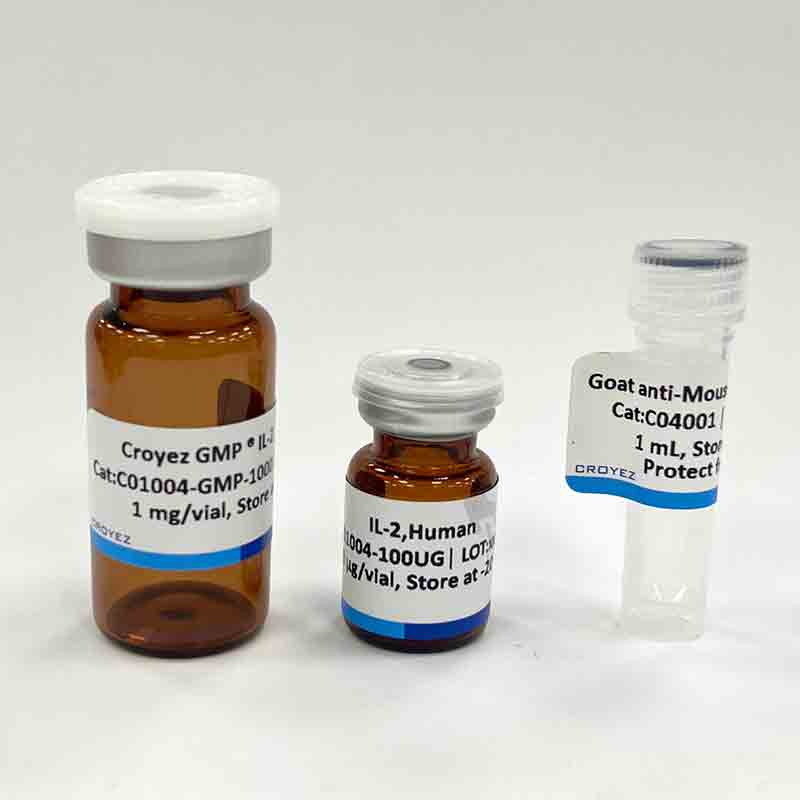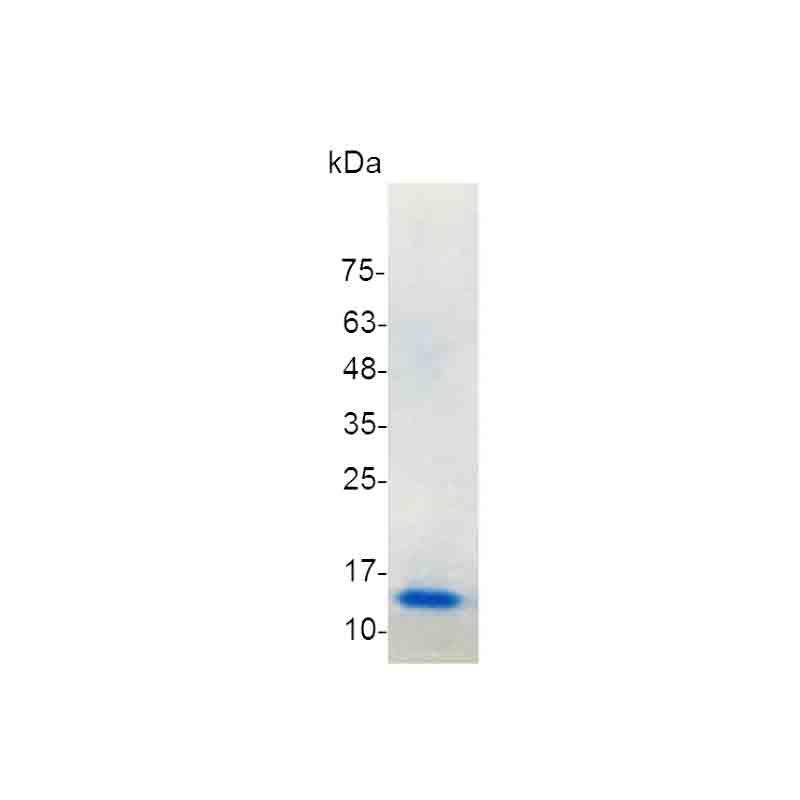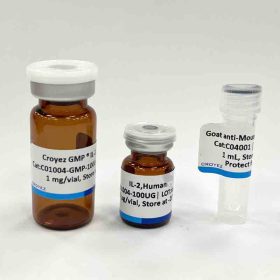Product Description
BDNF, also known as Brain-derived neurotrophic factor, is encoded by the BDNF Gene in human. BDNF is a member of the neurotrophin family of growth factors, which are related to the canonical nerve growth factor. Neurotrophic factors are found in the brain and the periphery. The versatility of BDNF is emphasized by its contribution to a range of adaptive neuronal responses including long-term potentiation (LTP), long-term depression (LTD), certain forms of short-term synaptic plasticity, as well as homeostatic regulation of intrinsic neuronal excitability.
equence:
MHSDPARRGELSVCDSISEWVTAADKKTAVDMSGGTVTVLEKVPVSKGQLKQYFYETKCNPMGYTKEGCRGIDKRHWNSQCRTTQSYVRA
LTMDSKKRIGWRFIRIDTSCVCTLTIKRGR with polyhistidine tag at the C-terminus
Source:
Escherichia coli
Endotoxin Test:
<0.1 EU per 1 μg of the protein by the LAL method.
Activity:
Measure by its ability to induce proliferation in BaF3 cells transfected with TrkB. The ED50 for this effect is <2 ng/mL.
Purity:
≥98% as determined by SDS-PAGE, ≥96% by HPLC.
Purified by Ni-NTA chromatography.
Formulation:
The protein was lyophilized from a solution containing 20 mM sodium citrate, 0.2 M NaCl, pH 3.5.
Reconstitution:
It is recommended to reconstitute the lyophilized protein in sterile H2O to a concentration not less than 100 μg/mL and incubate the stock solution for at least 20 min to ensure sufficient re-dissolved.
Storage:
Lyophilized protein should be stored at -20°C. Upon reconstitution, protein aliquots should be stored at -20°C or -80°C.
Note:
Please use within one month after protein reconstitution.





